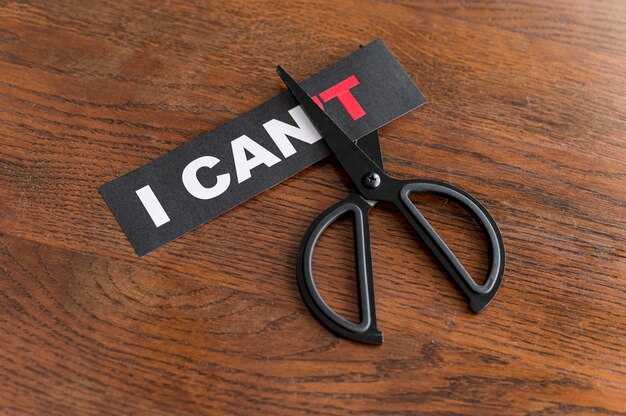Today I want to tackle a difficult question: should you change for your partner? The short answer is no — don’t alter who you are just to fit someone else. Changes made solely to please a partner rarely last, because they aren’t rooted in your own conviction. Real transformation must begin with you. My work focuses on accountability and honest self-examination: both partners need to acknowledge what a healthy, secure relationship looks like and then actively pursue those standards. If you can’t reach agreement about what a relationship requires to thrive, then closeness and real connection are unlikely. In The Meaning of Marriage, Tim Keller argues that one of the truest demonstrations of love is the willingness to change — to adjust attitudes and behaviors that wound your spouse. The trouble is that many of us won’t even sit down for the hard conversations needed to identify what actually hurts the other person. If difficult talks scare you because you expect them to end in a fight, then one, you probably don’t know each other deeply enough for intimacy, and two, you’re forfeiting a major opportunity to show love by being willing to change for the other — but that can only happen when you truly know each other.
The reality is everyone has something to work on. For some, the first shift must be seeing beyond the instinct to blame the other person. When change is mentioned, many immediately think only of their partner: “If they would just do this, everything would be fine.” Maybe they are part of the problem, but pride and ego often prevent us from noticing our own blind spots. Romantic relationships frequently mirror how we view ourselves — our self-worth, unprocessed pain, and patterns from the past. It’s easier to point a finger than to accept that we’re the common factor in repeated unhealthy partnerships. That doesn’t mean anyone deserves mistreatment; it means begin with self-reflection rather than automatic blame.
So what should you actually change or work on to create a mutually fulfilling relationship? Here’s a practical list, in no particular order. First: can you handle safe conflict and the hard conversations? Relationships don’t have to be dramatic, but they need safety, trust, and mutual respect because everyone will hurt one another at times. The difference between relationships that fail and those that endure is how couples move from conflict back toward closeness and repair. When you’re wounded or want to be loved differently, don’t attack, shame, or criticize. Passive-aggressive behavior won’t produce the change you want; it usually signals emotional immaturity and leaves both people feeling disconnected. If you feel hurt and crave empathy but don’t know how to be vulnerable, dig into those fears. Perhaps no one has ever been a safe listener for you — if so, leave unsafe relationships and consider therapy to heal old wounds.
The healthiest way to express hurt is to own your emotions, describe a concrete moment, and explain what you would like instead. For example: “I know you didn’t mean to hurt me, but when you made that joke about me at the party, I felt abandoned. In the future, I would like you to avoid making me the butt of jokes.” On the receiving end of a complaint, practice being a safe place: drop defensiveness, avoid dismissing or blaming, don’t interrupt, mock, or show contempt. Those behaviors are immature and only cause your partner to feel unheard and unloved. That doesn’t mean tolerating verbal abuse — boundaries matter — but it does mean valuing your partner enough to let them express their feelings. If you don’t care about how your partner feels, the relationship is already in trouble. Show you care by listening, validating, and trying to understand, even when you don’t fully agree.
Next, simplify: learn what actually fills your partner’s “love tank.” Discover the things that make them feel valued and the actions that leave them feeling neglected. This is where intimacy grows. Know these needs as well as you know the back of your hand — maybe it’s words of affirmation, appreciation, gentleness, shared time, a hug at the door, a sticky note on the mirror, or a deliberately planned date night. If your partner says “I don’t know” when asked what they need, ask them what they remember from the time they fell in love with you: which behaviors made them feel safe, desired, or connected? Some people struggle to name their needs because of depression or trauma, but skipping this exploration is not an option. Do the internal work, learn about your partner, and then act on it. You won’t meet every need — life, work, and children limit us — but you can meet some, and yes, that requires sacrifice. Love often requires giving up something for the other, and it only works when both people are willing. Stop sacrificing in ways that don’t actually make your partner feel prioritized. If you were a vegetarian and I cooked meatloaf every night, you’d tell me to stop — the effort matters only if it aligns with the person’s actual preferences. If you want advice, follow your partner’s advice: notice what they respond to. Many men feel appreciated when told what they’re doing right, not just criticized for mistakes. Appreciation and respect go a long way.
A few pointers specifically for partners of men: many men value autonomy and can feel suffocated if they sense the walls closing in. Pushing too hard to control or limit their freedom often makes them pull away; paradoxically, granting reasonable independence can help them feel safer to be close. That doesn’t mean tolerating neglect — repeatedly choosing golf or hunting over emotional presence is not acceptable. If your current dynamic isn’t working, speak up with confidence: you might be okay with certain hobbies, but you need someone who is more physically or emotionally available. Also, men often respond strongly to feeling desired: flirt, tell him he’s attractive while he’s fixing something, or say what you find appealing about him. If sexual desire is low, acknowledge it honestly and suggest counseling together to rebuild trust and intimacy.
And for the men reading this: pay attention. She is your equal and deserves the same respect you expect. Being protective should not translate into being the source of fear in her life. Integrity means never using aggression or coercion, whether with words or actions. Dr. John Gottman’s research found that when a man consistently refuses his partner’s influence — defaulting to pride and unilateral decision-making — there is an 81 percent chance the relationship will fail. If you were never taught empathy, validation, and connection, you need to learn them now; they are essential to relationship survival. Often the problem isn’t that she’s overly needy — it’s that she’s asking for basic things like intimacy and emotional safety that you aren’t providing. That needs to change.
Make sure she believes you value her beyond sex. If tenderness is only present when you want sex, she will feel objectified and turned off. After intimacy, don’t disappear for days; non-sexual affection matters: touch, kisses, hugs offered without agenda. Pay attention to the invisible labor that keeps a household functioning; women often carry a heavier mental load, and taking responsibility for parts of that work builds trust. Start conversations about responsibilities, ask where she feels neglected, and willingly take tasks without waiting to be asked.
Initiate conversations about conflict and design a healthier pattern: discuss what constructive disagreements look like, role-play a “fake fight” to practice responses, and create a concrete plan for how to repair after a real fight when emotions run high. Write the plan down, rehearse it, and then use it under stress — that rehearsal is how you preserve closeness. Also, especially for men, regularly ask about her day. It may not feel essential to you, but it can matter deeply to her. Even Jordan Peterson recommends spending at least 30 minutes a day talking with your partner: turn off screens, look her in the eyes, invite her to share something that excited her or weighs on her heart, and then listen. Don’t listen just to check a box; listen so you can follow up days later and show you’re on her side.
Another non-negotiable skill is apologizing and taking responsibility. Even if you don’t believe you were wrong, don’t dismiss or belittle your partner by calling them overly sensitive. How couples repair matters most: care about the hurt, listen with curiosity and validation, accept any role you played, and say, “I’m sorry, that was wrong. Your feelings matter to me. Here’s what I’ll do next time.”
Many people also must address trust issues: unhealed trauma, insecure attachment styles, the inability to set or hold boundaries, or the refusal to respect a partner’s boundaries. Trust is the backbone of any relationship; without it there’s no stable structure. Yet we chip away at trust through harsh words, neglect, self-centeredness, or by losing ourselves in an attempt to please. Real trust requires honesty, vulnerability, mutual respect, advocating for your needs, and anticipating your partner’s needs out of care.
Ultimately, everyone has to change something to become a better partner. Healthy change reshapes the relationship — sometimes for the worse, because new boundaries reveal whether the other person was ever willing or able to love you respectfully. If they reject reasonable boundaries, they were probably never interested in loving you well. But change can also lead to something much better: when you stop living in fear, stop tolerating neglect, and show up as your true self — clear about what you need and unwilling to apologize for it — you attract people capable of reciprocating that love. Yes, you will narrow your options, but you’ll also eliminate those who never intended to love you in the way you deserve. Be the change you want to see: have the hard conversations, prioritize safety and trust, define intimacy clearly, own your defensiveness, speak with kindness, and work on your side of the relationship first — because one of the deepest forms of love is the willingness to change.


 Smetti di cambiarlo/a PER loro ⧸ Consigli di relazione">
Smetti di cambiarlo/a PER loro ⧸ Consigli di relazione">

 Relationship EXPERT reveals Secrets to Connection: Dr. Sue Johnson">
Relationship EXPERT reveals Secrets to Connection: Dr. Sue Johnson">
 Are You Surrounded by Bullies? The Hidden Reason You Let Them In">
Are You Surrounded by Bullies? The Hidden Reason You Let Them In">
 Your Partner’s Behavior is Trauma-Related, But It’s Still Not OK">
Your Partner’s Behavior is Trauma-Related, But It’s Still Not OK">
 The STRONGEST Sign An Avoidant Still Loves You Deeply">
The STRONGEST Sign An Avoidant Still Loves You Deeply">
 If You Shut Down During Conflict, Watch This">
If You Shut Down During Conflict, Watch This">
 Se il tuo partner dice queste frasi, è un evitante">
Se il tuo partner dice queste frasi, è un evitante">
 Fino a quando questo turno non ha finalmente fatto tornare l'evitante | Discorso motivazionale di Mel Robbins">
Fino a quando questo turno non ha finalmente fatto tornare l'evitante | Discorso motivazionale di Mel Robbins">
 Per la Guarigione, l'Azione Sana è Più Potente delle Storie Tristi">
Per la Guarigione, l'Azione Sana è Più Potente delle Storie Tristi">
 Un partner deve sapere del tuo passato — ma cosa succede se state solo frequentando?">
Un partner deve sapere del tuo passato — ma cosa succede se state solo frequentando?">
 TRUCCHIAMENTO è per COWARDI EGOISTI (come me)">
TRUCCHIAMENTO è per COWARDI EGOISTI (come me)">